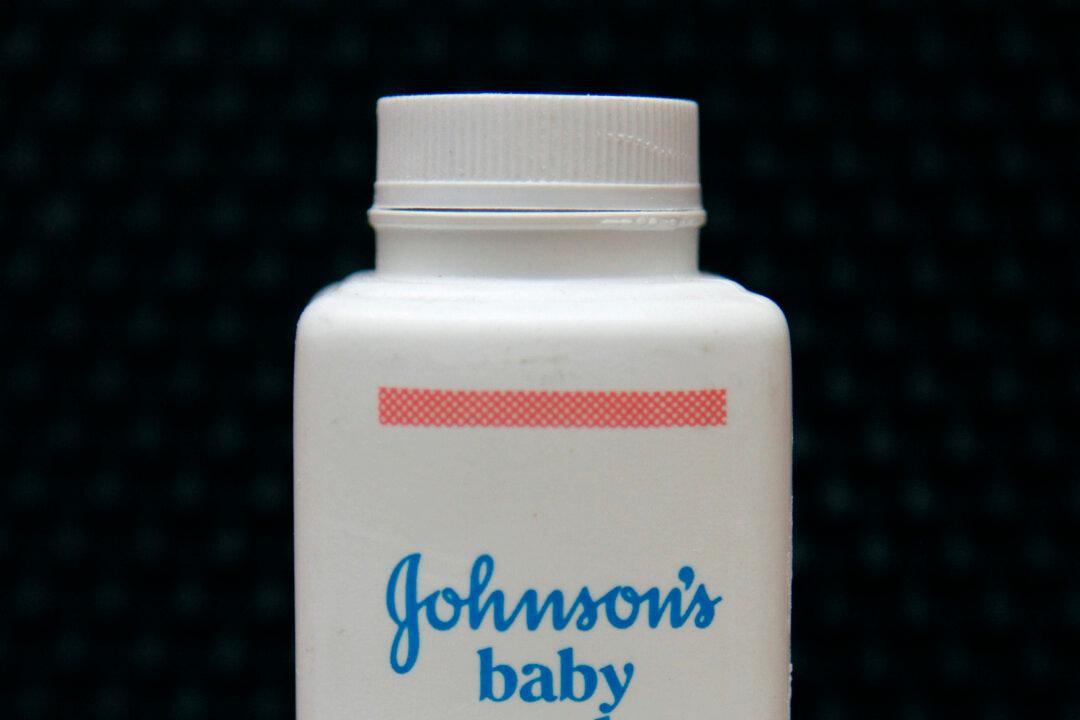FAIRLESS HILLS, Pa.—Johnson & Johnson is ending sales of its iconic talc-based Johnson’s Baby Powder in the United States and Canada, where demand has dwindled amid thousands of lawsuits claiming it has caused cancer.
The world’s biggest maker of health care products said Tuesday the talc-based powder will still be sold outside the United States and Canada.





